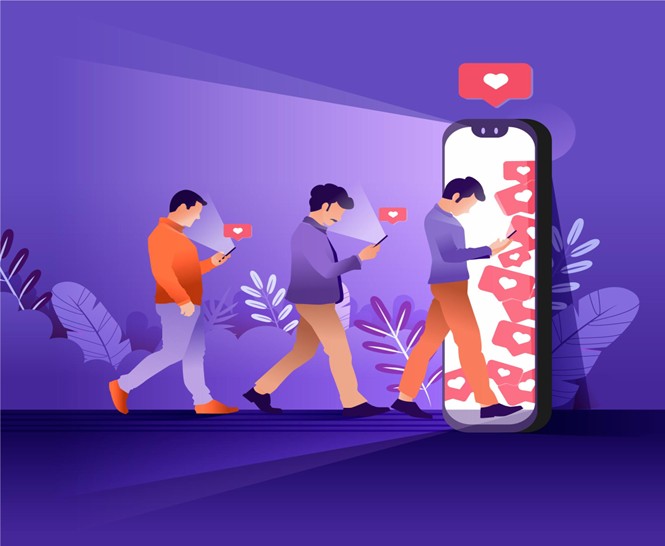Why Influencer Marketing Matters for Gen Z & Millennial Brands
In the past decade, influencer marketing has become a go-to for brand engagement, particularly in the younger generation, and for the right reasons. For one, it’s proven to be a highly effective tactic to decode Gen Z consumer behavior, with around 70-80% of them relying on influencer recommendations for their online shopping.
Likewise, nearly half the Millennials (49%) trust recommendations by influencers, making it an inevitable part of Millennial marketing, too. In other words, your marketing approach must include influencers to target this younger demographic. But exactly how can influencer marketing boost your online presence?
How Influencer Marketing Is Reshaping Consumer Behavior in Gen Z and Millennials
Let’s walk you through why influencer marketing is so effective.
-
Authenticity
The secret to influencer marketing effectiveness is authenticity. Gone are the days of polished celebrity endorsements that feel out of touch. Influencers thrive because they are relatable and authentic, often presenting themselves as “one of us.” They create content that feels real and attainable.
Gen Z craves authenticity over everything else, with over 90% of them saying they value authenticity in almost every aspect of their lives, social media included. That’s why influencers play a critical role in Gen Z marketing. Gen Z users quickly spot inauthenticity and connect only to influencers who are upfront about their real-life experiences, whether good or bad.
Likewise, Millennials, who grew up alongside social media, prioritize relatable, personalized content over flashy advertisements. This authenticity is what drives Millennial consumer behavior and helps your brand build trust. And since influencers connect on a human level, they can help you build credibility that traditional PPC Advertising simply can’t replicate.
Takeaway: If you are collaborating with influencers, focus on genuine partnerships. If their voice and values align with your target audience, the social media influencers’ impact will be profound and long-lasting.
-
The Power of Social Proof
We are wired to follow the crowd, and this is another reason behind growing influencer marketing effectiveness. When influencers endorse a product, they don’t just offer a personal opinion; they provide social proof. For Gen Z and Millennials, seeing their favorite influencer use a product can validate its worth instantly.
Would you rather trust a glossy TV ad or a trusted fitness influencer sharing tips from their own journey? The latter feels more credible and persuasive. Influencers amplify their engagement by talking directly to their followers, answering questions, and addressing concerns in real time.
Takeaway: Highlight the social media influencers’ impact by showcasing their genuine experiences. Be sure your strategy focuses on cultivating and sharing such experiences to build a strong brand following over time.
-
Hyper-Personalized Content
Influencers know their audience inside out. They understand what works best and create hyper-personalized content that feels tailor-made. This ability to craft unique, engaging messages directly appeals to Millennial and Gen Z digital habits, where personalization reigns supreme.
For Gen Z, who thrives on personalization, this approach feels like a natural extension of their digital lives. Millennials, while more accustomed to generalized marketing, still appreciate content that speaks directly to their values and interests. In fact, they are the second largest group (46%) after Gen Z (47%), expecting personalized product recommendations from brands.
This level of specificity is hard to achieve with traditional marketing, making influencer marketing highly effective for both groups. Moreover, social media influencers’ impact on small, offbeat niches, like sustainable fashion, mental health awareness, or minimalist living, allows your brand to connect with focused communities authentically.
Takeaway: When chalking out influencer marketing for Gen Z and Millennials, find someone who can cater to your niche audience with genuine content. Let them lean into their unique styles and understanding of Millennial and Gen Z digital habits for maximum impact.
-
FOMO and Immediate Purchase Behavior
Fear of missing out (FOMO) is a powerful driver, especially in Gen Z and Millennial consumer behavior. Sharing limited-time offers, exclusive discounts, or product launches through influencers often triggers an urgent response from Gen Z and Millennials.
Platforms like Instagram and TikTok fuel this urgency with features like countdowns, live streams, and “swipe-up” links. It’s the best way to tap into Gen Z customers who are digital-first and quick decision-makers.
So, when crafting influencer marketing for Gen Z, don’t forget to tap directly into this behavior. Millennials, although slightly more measured, are still highly responsive to influencer-led campaigns that emphasize scarcity or exclusivity.
Takeaway: Use limited-time offers or early access promotions in influencer marketing for Gen Z and Millennials. The combination of FOMO, convenience, and alignment with Gen Z digital habits is a proven recipe for success.
-
The Rise of Video and Interactive Content
Millennial and Gen Z digital habits have video content written all over them. More than 60% of Gen Z and Millennial users prefer watching short videos (one minute or less) on their smartphones throughout the day, and influencers dominate this space.
From TikTok challenges to Instagram Reels, video content creates engaging, memorable experiences that drive consumer behavior. Interactive content takes this a step further. Think about polls, Q&A sessions, or live unboxings where followers can actively participate. These formats make your audience feel involved and valued, fostering a strong brand connection.
Takeaway: Invest in influencers who excel at video creation and interactive storytelling. The more engaging the content, the greater its impact on Millennial and Gen Z consumer behavior.
While influencer marketing drives results, it’s not everyone’s cup of tea. You need skills, patience, and time to develop and implement an influencer marketing plan for Gen Z and Millennials. That’s where partnering with a full-stack influencer marketing agency can help.
The agency will handle everything— from identifying the right influencers and managing campaigns to analyzing performance data and refining strategies. By leveraging their expertise, your brand can boost influencer marketing effectiveness and enjoy long-term success.
Final Thoughts
If you believe influencer marketing isn’t just a passing trend, you are wrong. It’s reshaping how younger generations, especially Gen Z and Millennials, engage with brands. For these generations, influencers aren’t just marketers; they are trusted friends who bridge the gap between brands and consumers.
To succeed in this space, brands must prioritize authenticity, leverage social proof, embrace personalization, create urgency, and focus on engaging video content. When done right, influencer marketing can help you build credibility for years.




